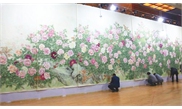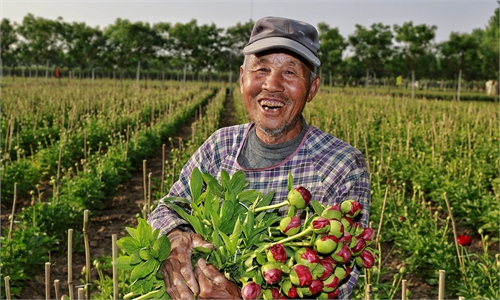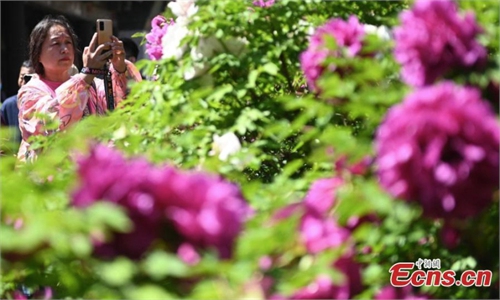ARTS / CULTURE & LEISURE
Blossom festival held in Heze, hometown of peonies
City in Shandong boosts tourism with symbolic flowers
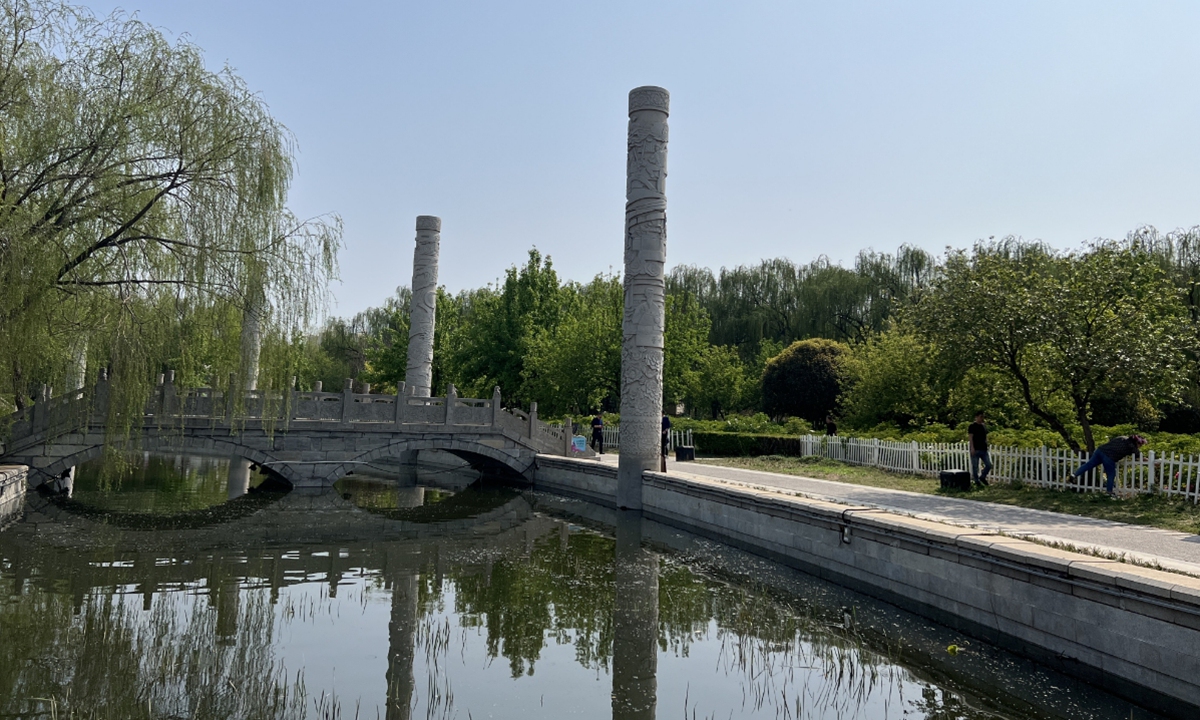
Photo: Lou Kang/GT
As peonies bloom in abundance, tourists from home and abroad have been flocking to Heze in East China's Shan-dong Province, the hometown of peonies, for a special event.The 2024 International Peony Cultural Tourism Festival opened in the city on Monday, with an ad-ditional satellite venue in Shimane, Japan. This kind of flower has served as a cultural ambassador fostering exchanges between the two countries since it was first introduced to Japan during the Tang Dynasty (618-907).
Established during the Ming Dynasty (1368-1644), the Caozhou Peony Garden is home to more than 100 century-old peonies and has witnessed the vicissitudes and splendor of this land. Encom-passing more than 300 varieties, the garden shines with a mix of classic domestic breeds and rare imports, while newly cultivated varieties with fragrances add a delightful touch.
In traditional Chinese culture, peonies often symbolize wealth, honor, prosperity and happiness, painting a picture of luxuriousness and magnificence.
"Compared with flower culture elsewhere in the world, Chinese flower culture has a typical aesthet-ic tendency and traditional psychology surrounding the 'imagery' of flowers. Flowers and trees are closely linked to the ideological, value, moral and aesthetic standards of Chinese people. The spirit of traditional Chinese literati and the simple concept of 'harmony between man and nature' are also reflected in the cultivation, appreciation and artistic expression of flowers," said Han Fei, an associ-ate professor with the Communication University of China.
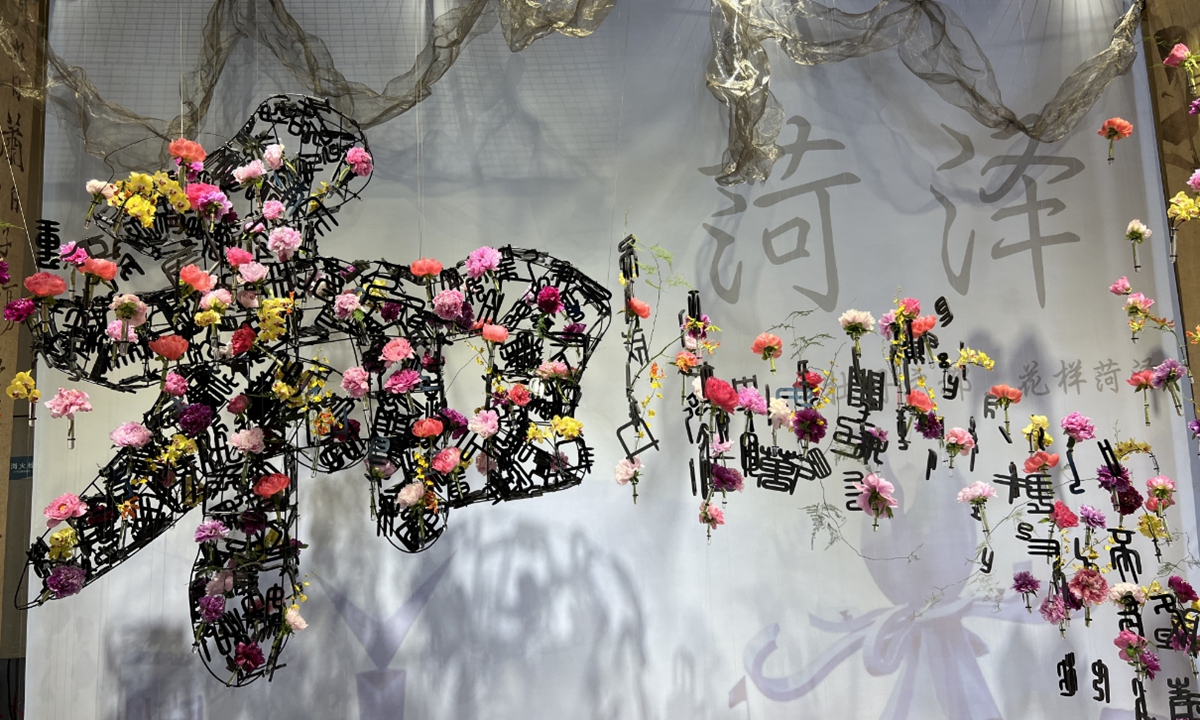
Photo: Lou Kang/GT
Among China's vast kingdom of plants and flowers, peonies symbolize the cultural characteristics of China.Heze is hailed as the "capital of Chinese peonies," with its history of cultivation dating back to the Sui Dynasty (581-618). Currently, Heze boasts more than 1,200 varieties, encompassing nine color series and 10 flower types, making it the world's largest base for peony breeding, cultivation and research, said Yang Dongbo, director of the Heze Municipal Bureau of Culture and Tourism.
Influenced by the cultural and tourism boom, this year's peony festival will also serve as an im-portant component of local cultural tourism leveraging peonies.
To provide visitors with a deeper understanding of peony culture, local authorities have launched immersive experiences themed on "Peonies and Time Traveling back with Ancient Celebrities." Wandering in the garden, visitors can "travel through time" and appreciate the charm of peonies by meeting with legendary figures such as Yang Guifei, Li Bai and Xi Shi, listening to their legendary stories and enjoying an unprecedented garden experience.
To promote local cultural tourism through peonies, Yang told the Global Times that the city has planned 10 spring flower tours.
"In addition to peony-centric routes, visitors can explore the popular Caoxian Hanfu Town, enjoy opera performances, experience intangible cultural heritage projects, and more," Yang noted.
However, peonies are just one facet of Heze's cultural tourism. Yang told the Global Times that be-sides visiting major peony gardens, tourists can explore attractions like Caozhou Ancient City, Qin-glong Mountain, and Yellow River Wetland Scenic Area.
As part of the festival, more than 20 high-quality domestic and international performances will take turns to entertain visitors.
